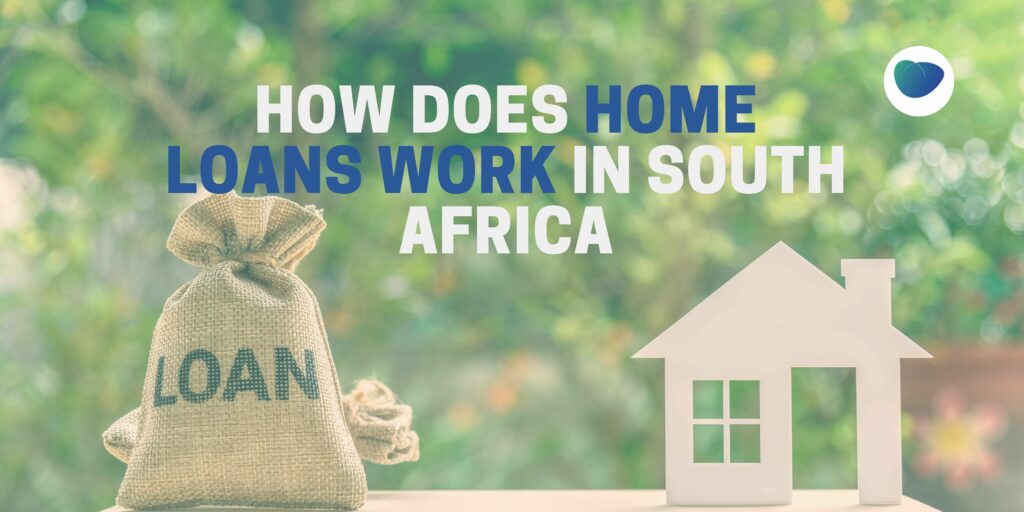One of the most significant purchases you will make in your lifetime is likely to be buying a home, so it is important to do it right and choose the best one! Have you decided that you no longer want to waste money by paying rent so you want to buy a home instead? Here are some essential facts about home loans in South Africa that you must know!
What is a Home loan?
A home mortgage is a financial instrument to help buyers finance the purchase of a home. Mortgage companies, banks, and financial institutions offer home mortgage loans.
This residence could be a primary residence, a secondary residence, or an investment residence. The lender could be a friend, family member, colleague, or investment firm.

How does home loans work in South Africa
Basically, it’s a loan given to you by a lender, where a security interest in the home you are buying is put up to guarantee repayment if you can’t make it.
As soon as your bond is registered, the home loan provider will keep the title deed to your property until your home loan is paid off in full. As long as your home loan is not fully repaid, your home remains the property of the home loan provider.
The principal factors in your loan repayment are how much you borrow and how long it takes to repay it. Generally, you must pay back the home loan plus interest over a set period of time, most commonly between 20 and 30 years.
The interest rate on your bond is determined by the South African Reserve Bank (SARB). The amount of your instalments will vary as the interest rate increases or decreases. During the first few years, most of your loan repayments will be used to pay off interest. Over time, your repayments will go toward paying off the actual loan amount.
A few things you should know about before applying:
- Understand what you like and don’t like, where you want to buy, and how much the property is worth in the area
- Compare home loan rates and home loan providers for the best deal
- Think about your family’s needs and make sure the home you buy fits your lifestyle
What do I need to qualify for a home loan in South Africa?
Home Loan lenders consider a monthly income a reliable indicator you are likely to get approved for a home loan. The affordability of your loan is one of the most important factors a home loan provider considers when considering you for a home loan. This is based on what you earn compared to what your monthly loan repayments could be.
In addition to your credit history, the lender will also consider other factors when determining whether you are eligible for a mortgage.
Some of the most important ones are:
- Age
- Income and job stability
- Other additional income you may have
- Credit history
- Other debt
- The size of the deposit you can put down
SA Homeloans will also not approve a home loan if the repayments are more than 30% of your single or joint gross monthly income.
Tip: The cost of the property isn’t the only thing to consider. There are also other costs to consider, such as transfer duties, attorney fees, moving costs, and the time you will spend on everything.
Requirements
The requirements for getting a private loan might vary depending on the financial service provider. The following requirements are obtainable with a great percentage of South African credit providers;
- Valid South African ID
- Proof of income
- Schedule of monthly household income and expenditure
- Proof of address (A bill in your name which quotes your address)
- Offer to purchase
- Bank statement
Before applying for a home loan, be sure you meet the above requirements. There are also a few more reasons banks reject home loan applications. Take these reasons into account and you might be one step closer to receiving approval for your home loan.
How to qualify for a Home loan in South Africa
There are a number of financial requirements you must meet in order to buy a home in South Africa. Understand your financial situation and explore your options before applying for a home loan.
1. Prepare your Credit rating for getting a Mortgage.
Request a free credit report which you are entitled to and go through it carefully. Have any errors which you find fixed and keep a watchful eye for any fraud.
One of the most important things you can do is to pay off your debt. The lower your debt is at the time of purchasing a home, the better, as this leaves you with a larger disposable income and the bank will view this favorably.
2. Finding a Home loan.
Make sure you compare different direct lenders’ home loan products based on their interest rates, fees, and payment schedules. Additionally, you may qualify for special deals from your bank since you’re a loyal customer.
Alternatively, you can contact a mortgage broker, whose job it is to apply for a home loan to a variety of banks and lenders and negotiate the best deal on your behalf. Unlike mortgage lenders, mortgage brokers will not charge you for their services.
They will receive a commission from the bank once you choose and approve a home loan offered.
3. Save for a Deposit to buy a Home.
Usually, you’ll need to place a deposit with your lender, but first-time home buyers may be able to get a 100% bond. When you purchase a home, you will pay a deposit out of your own pocket.
An increased deposit will increase your chances of getting a home loan not only because the banks will offer you a better interest rate, but because it will lower your monthly payments and help you save money over the long run.
4. Government Home buying programmes.
Consider taking out a home loan subsidy or a loan backed by the South African government. You will certainly get a good deal with a low interest rate and little deposit.
5. Getting pre-approved for a .
Getting pre-approved for a home loan will give you greater bargaining power when it comes to buying a house and ensure you don’t look at houses in a price range that you can’t afford.
Top 5 Private home lenders in South Africa.
The ever available credit service South Africa enjoys through different finance bodies is something to be grateful for. However, to enjoy these advantages, it is important to know which service providers are available. The following is a list of 5 credit providers that can off;
1. Capitec loans.
A member of the JSE, Capitec Bank is one of Africa’s leading financial services providers. Committing a great percentage of their resources on finding local solutions to uniquely local challenges. A real entrepreneurial spirit motivates them in their quest to improve the lives of Africans.
To this end, the Capitec loan offers a wide range of retail, business, corporate and most especially home loans.
2. FNB loans.
In South Africa, FNB is the oldest bank, having been established in 1838 as the Eastern Province Bank in Grahamstown. Two features in particular stand out on the FNB platform. The first is a story of survival – different circumstances in South Africa have posed many great challenges in our history, all of which FNB has successfully met.
Aside from the fact that they have high grade loaning products, they also have some of the best terms for home loans.
3. Sentinel homes.
This is another great option for prospective homeowners. Sentinel Homes is an alternative home financier to banks and other home loan providers serving the Western Cape and Gauteng areas. They are the first South African company to offer an alternative to bond finance in the open market.
The company is the brainchild of the team at Combined Finance, which has been operating as investors and financiers in the real estate industry since 2013.
4. Ned Banks.
Ned bank is one of South Africa’s four largest banks. Whether you’re buying, building or switching your home, Ned bank home loan is available to assist you and help you take each step in your property journey with confidence. Their goal is to ensure that you can return to your dream property every day.
5. Standard bank home loan.
Standard bank is a deeply rooted financial service provider. A home loan from Standard bank can provide you with a range of flexible options to help you make your next big move. Whether you plan on becoming a homeowner, a home builder, or are already a homeowner. Their differentiator is their long-term efficiency and commitment to Africa.
Major reasons banks decline home loans in South Africa
The question ” why do banks decline home loans” has been lingering for a while now. Here are some of the reasons banks reject home loans and some of the solutions to the problems
1. Affordability
When it comes to loan approval, affordability is one of the most important factors. The National Credit Act measures affordability in terms of net disposable income. In order to determine affordability, the applicant’s gross income, net income and fixed monthly expenses will be considered.
2. Debt Review / Under Administration
The National Credit Act prohibits financial institutions from extending credit to applicants under review. Violation of this principle is a serious offense and can result in harsh penalties for such institutions. By contravening these principles, financial institutions are guilty of reckless lending.
3. Credit History
The credit history of the applicant is also a major factor when it comes to assessing a home loan application. Your credit score will not only affect the approval of your home loan, but may also affect the deposit requirements and interest rate charges.
4. Loan to Value too High
You may still be turned down even if you have a great credit record and sufficient disposable income. This usually occurs when the market value of the property is less than the loan application. The financial institutions must ensure that they have sufficient security for the requested loan. This safeguards potential buyers from overpaying for the property.
5. A botched application
This is the most basic, yet most common mistake loan applicants make. If the applicants cannot handle their loan applications correctly, they make this mistake. Leaving sections of the application unfinished, entering incorrect information, or failing to include the required documentation contributes to this mistake.
Make sure you know the do’s and don’ts of home loan application before you apply.
How many home loans can you have
Multiple home equity loans are possible if you own equity in your home. Regardless of whether you get another home equity loan on the same house or multiple home equity loans on different homes, you need to understand that your creditworthiness plays a role in your approval.
Conclusion
Home loans can be helpful for certain situations and can be a creative solution for borrowers. Especially those who may have difficulty borrowing or simply need the flexibility of private lending offers. Weigh the risks to rewards before entering a private agreement and seek professional help for guidance as needed.
